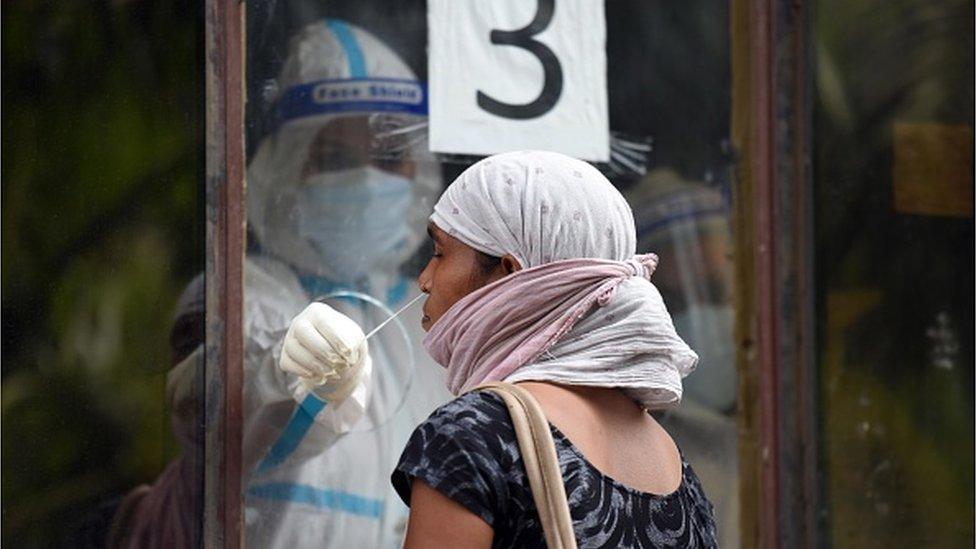India coronavirus: New study shows more women in Delhi had Covid
- Published

Delhi has scaled up testing in recent weeks
More women than men in India's capital Delhi have been exposed to coronavirus infection, a second round of antibody tests on a sample of people suggests.
The government survey found nearly a third of more than 15,000 residents, whose blood samples were tested, had Covid-19 antibodies.
The first survey in July found 23.48% of people tested had the antibodies.
Delhi has so far recorded more than 150,000 cases, and 4,257 deaths from Covid-19.
The latest survey, conducted in early August, found 32.2% of women in the capital had developed antibodies to the virus compared to 28.3% of men. The reason for this was not immediately clear.
Overall, 29% of people tested were found to have developed antibodies to the coronavirus.
This would mean nearly six million of Delhi's 20 million people were infected with the virus and had recovered.
Delhi Health Minister Satyendra Jain said the city was still far away from developing herd immunity to the infection. Herd immunity is achieved when enough people become immune to a virus to stop its spread.
"It is good that nearly 29% people have recovered and developed antibodies, which is higher than the 23% in the first survey, but herd immunity is reached somewhere between 40-70%," Mr Jain told reporters.
Similar studies in the badly-hit western cities of Mumbai and Pune have found over 40% of people tested had developed antibodies to the virus - the Pune survey reported antibodies in over half the people tested.
Experts say such studies are crucial because they help authorities understand the spread of the virus better.
The studies also guide them towards better distribution of testing facilities and help in coming up with area-specific containment policies.
Delhi has been one of the worst-hit cities in India and saw a chronic shortage of hospital beds in the first two weeks of June.
But hospital infrastructure has been improved since then and the number of daily cases has also fallen.
- Published17 July 2020